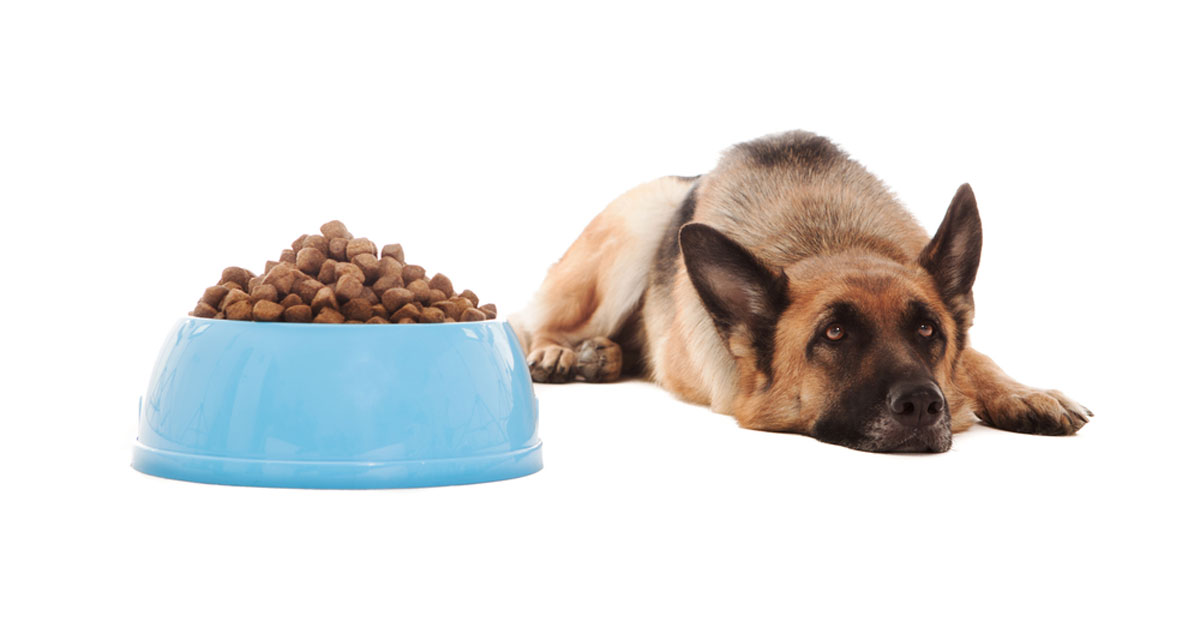If your German Shepherd is not eating, it can be concerning as a pet owner. However, there are several reasons why your dog may experience a loss of appetite.
Understanding these factors and providing proper dog care is essential. This article delves into the potential reasons behind a German Shepherd not eating, including illness, dental issues, stress, or changes in the environment.
Additionally, valuable dog care tips will be provided to help stimulate their appetite, such as offering a balanced diet, ensuring a calm feeding environment, and consulting a veterinarian if the issue persists.
Prioritizing your German Shepherd’s health and well-being is vital to ensure they receive the nourishment they need.
Table of Contents
Health Issues Understanding the Role of Illness and Pain
When your German Shepherd not eating, it could be an indication of underlying health issues. Illness or pain can greatly affect their appetite.
It’s important to consider common health problems that may cause a loss of appetite in German Shepherds, such as gastrointestinal issues, dental problems, infections, or even emotional distress.
Digestive disorders, including gastritis or pancreatitis, can lead to discomfort and a reduced desire to eat.
Dental issues, such as gum disease or tooth decay, can make chewing painful, making your dog reluctant to eat. Infections, whether viral or bacterial, can also impact their appetite. Furthermore, changes in their environment, routine, or the presence of stressors can affect their eating habits.
Changes in Appetite Common Causes and Concerns
Changes in appetite in German Shepherds can be attributed to various causes and may raise concerns for pet owners. It’s important to understand the common factors that can affect a dog’s eating habits. Firstly, a sudden change in diet or food brand can lead to a temporary decrease in appetite.
Additionally, environmental changes, such as a move to a new home or the presence of unfamiliar people or animals, can cause stress and impact their desire to eat.
Health issues, including gastrointestinal problems, dental pain, or infections, may also contribute to a loss of appetite. Other factors like age, hormonal changes, or medication side effects can influence their eating patterns.
The change in appetite persists for more than a day or is accompanied by other concerning symptoms like lethargy or weight loss, it is advisable to consult a veterinarian for a proper evaluation and guidance. Monitoring their eating habits and seeking professional advice will help ensure their health and well-being.
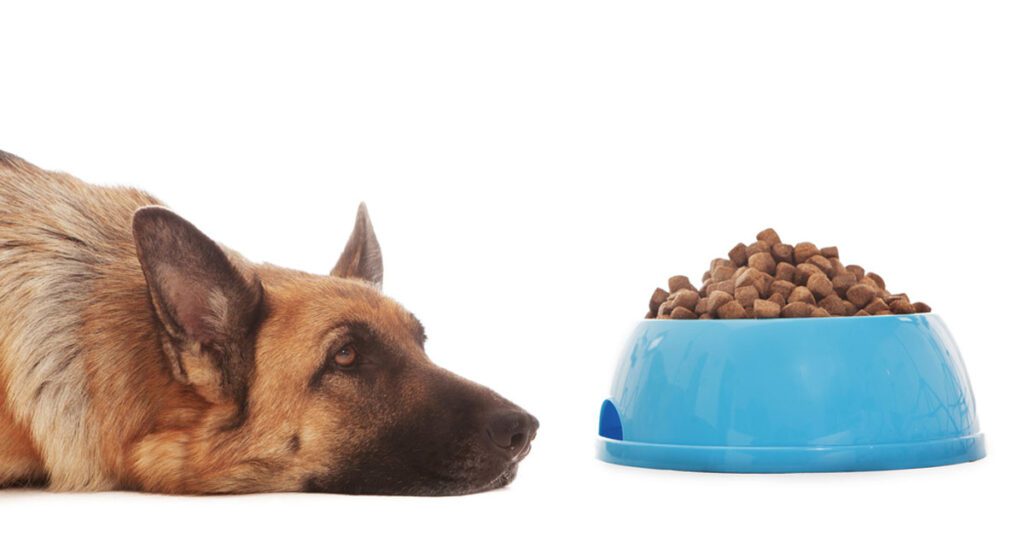
Food Preferences in German Shepherds
Here’s a table showcasing different food preferences commonly observed in German Shepherds:
| Food Type | Common Preferences |
| Dry kibble | Many German Shepherds prefer dry kibble due to its crunchy texture and convenience. Look for high-quality brands with a balanced nutritional profile. |
| Wet/Canned food | Some German Shepherds may enjoy wet or canned food due to its moisture content and stronger aroma. It can be mixed with dry kibble for added variety. |
| Raw or BARF diet | A small percentage of German Shepherds thrive on a raw or BARF (Biologically Appropriate Raw Food) diet, consisting of raw meats, bones, and vegetables. Proper research and guidance are crucial for this diet. |
| Homemade meals | Certain German Shepherds may prefer homemade meals, prepared with veterinarian-approved recipes that provide the necessary nutrients. Attention must be given to achieving a balanced diet. |
| Treats and snacks | German Shepherds often enjoy treats and snacks, such as meaty chews, dental sticks, or natural treats. These can be used for training, rewards, or dental health. |
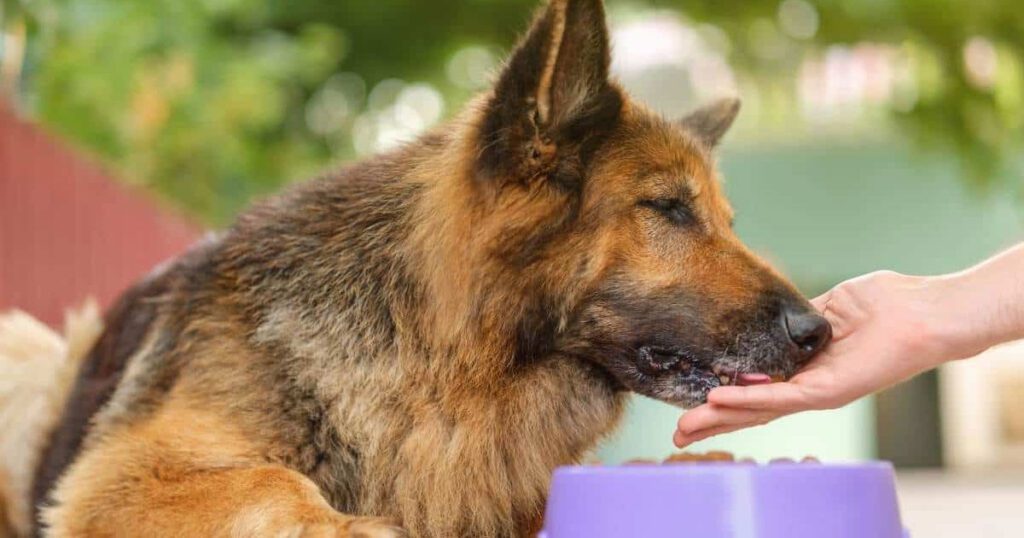
Dental Problems How Oral Health Affects Eating Habits
Optimal nutrition is essential for promoting the overall well-being and vitality of your canine companion, particularly German Shepherds.
Here are some important considerations and food tips to ensure their diet is well-rounded and beneficial:
- Choose High-Quality Food: Opt for high-quality dog food brands that provide a balanced nutritional profile. Look for options specifically formulated for large breed dogs, as German Shepherds fall into this category.
- Protein and Healthy Fats: German Shepherds thrive on a diet rich in high-quality proteins, such as chicken, beef, or fish. Incorporate healthy fats, like omega-3 fatty acids found in fish oil or flaxseed, for a shiny coat and good skin health.
- Balanced Carbohydrates: Select dog foods that contain whole grains or nutrient-rich carbohydrates like sweet potatoes or brown rice. These provide energy and essential nutrients.
- Avoid Harmful Ingredients: Steer clear of dog foods with artificial additives, preservatives, or fillers, as these can have negative impacts on your German Shepherd’s health.
- Monitor Portion Sizes: Follow the feeding guidelines provided by the manufacturer and adjust portion sizes based on your dog‘s age, activity level, and weight management needs.
- Hydration: Ensure your German Shepherd has access to fresh, clean water at all times to stay properly hydrated.
Stress and Anxiety Recognizing the Impact on Your Dog’s Appetite
When a German Shepherd is not eating, it’s essential to consider the potential influence of stress and anxiety on their appetite. Just like humans, dogs can experience emotional distress that affects their eating habits.
Changes in the environment, such as moving to a new home, the introduction of new family members or pets, or loud noises, can trigger stress in German Shepherds. Separation anxiety, caused by being apart from their owners, can also lead to a loss of appetite.
Traumatic experiences or past negative associations with food can contribute to their reluctance to eat. Creating a calm and soothing environment, establishing a consistent routine, and providing positive reinforcement during mealtime can help alleviate stress and encourage your German Shepherd to eat.
The Influence of Surroundings on Eating Behavior
The environment in which your German Shepherd eats can significantly impact their eating behavior. Various environmental factors can affect their appetite and overall enjoyment of meals.
For instance, loud noises, such as construction work or thunderstorms, may cause anxiety or distraction during mealtime. Similarly, a busy or chaotic household with constant foot traffic or the presence of other pets can create a stressful feeding environment for your German Shepherd.
The location of their food and water bowls, such as being too close to their sleeping area or in a high-traffic area, may make them feel uncomfortable or vulnerable while eating.
To promote a positive eating experience, designate a quiet and calm area for your dog’s meals, away from distractions and noise.
Providing a consistent feeding routine and ensuring a peaceful atmosphere can help create a conducive environment that encourages your German Shepherd to eat comfortably and enjoy their meals.
Aging and Decreased Appetite: Navigating Senior Dog Nutrition
As German Shepherds age, it’s not uncommon for them to experience a decrease in appetite. Understanding the changes in senior dog nutrition can help navigate this stage of their life.
Senior German Shepherds have specific dietary requirements to support their aging bodies. They may benefit from a diet that is lower in calories to prevent weight gain, yet still provides essential nutrients. High-quality senior dog food formulas are available, specially formulated to address their changing needs, including joint support and digestive health.
To entice a senior German Shepherd to eat, consider warming their food slightly or adding a small amount of low-sodium broth for added flavor. Softening dry kibble with warm water can also make it easier for them to chew.
Providing smaller, more frequent meals throughout the day can help stimulate their appetite and prevent them from becoming overwhelmed with large portions.
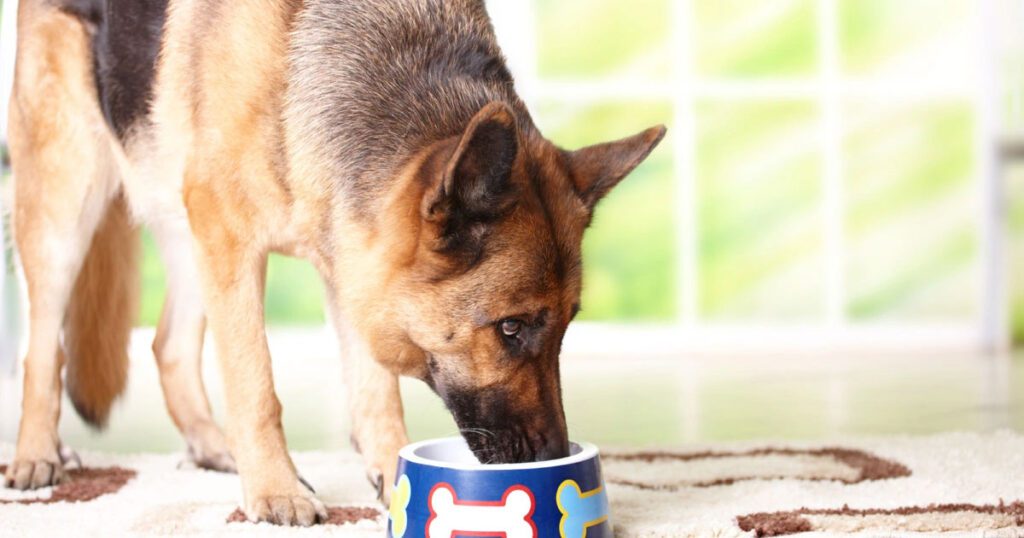
Food Quality and Palatability Assessing the Right Diet
Certainly! Here’s a table showcasing factors to consider when assessing the right diet for your German Shepherd:
| Factors to Consider | Description |
| Nutritional Balance | Ensure the diet provides a balanced mix of proteins, fats, carbohydrates, vitamins, and minerals suitable for German Shepherds’ specific needs. |
| Ingredient Quality | Look for high-quality ingredients, such as real meat, whole grains, and vegetables, and avoid artificial additives, preservatives, or fillers. |
| Age-specific Formulas | Consider age-specific formulas that cater to the nutritional requirements of puppies, adults, or senior German Shepherds. |
| Breed Size Formulas | Choose formulas designed for large breed dogs, as German Shepherds fall into this category, to support their bone and joint health. |
| Special Dietary Needs | If your German Shepherd has specific dietary needs or sensitivities, opt for specialized diets, such as grain-free or limited ingredient options. |
| Palatability | Assess the palatability of the food based on your dog’s preferences. Some German Shepherds may prefer dry kibble, while others may enjoy wet or raw food options. |
| Consultation with Vet | Consult with a veterinarian to ensure the chosen diet aligns with your German Shepherd’s specific nutritional requirements, health conditions, and any dietary restrictions. |
Considering these factors will help you make an informed decision when selecting the right diet for your German Shepherd, ensuring they receive the necessary nutrition for their overall health and well-being.
Recent Vaccinations and Medications: Temporary Effects on Appetite
It’s not uncommon for recent vaccinations or medications to have temporary effects on a German Shepherd’s appetite. Some dogs may experience a decrease in appetite or mild gastrointestinal upset following vaccinations or certain medications.
This can be a normal response as their immune system reacts to the substances introduced into their body. It’s important to note that these effects are typically short-lived and resolve on their own within a day or two.
To support your German Shepherd during this time, ensure they have access to fresh water and offer small, easily digestible meals. Avoid forcing them to eat or offering rich or heavy foods that may further upset their stomach.
If the loss of appetite persists for more than a couple of days or if you notice any concerning symptoms, it’s recommended to consult with your veterinarian for further guidance and to rule out any underlying issues.
With proper care and patience, your German Shepherd’s appetite should return to normal in no time.
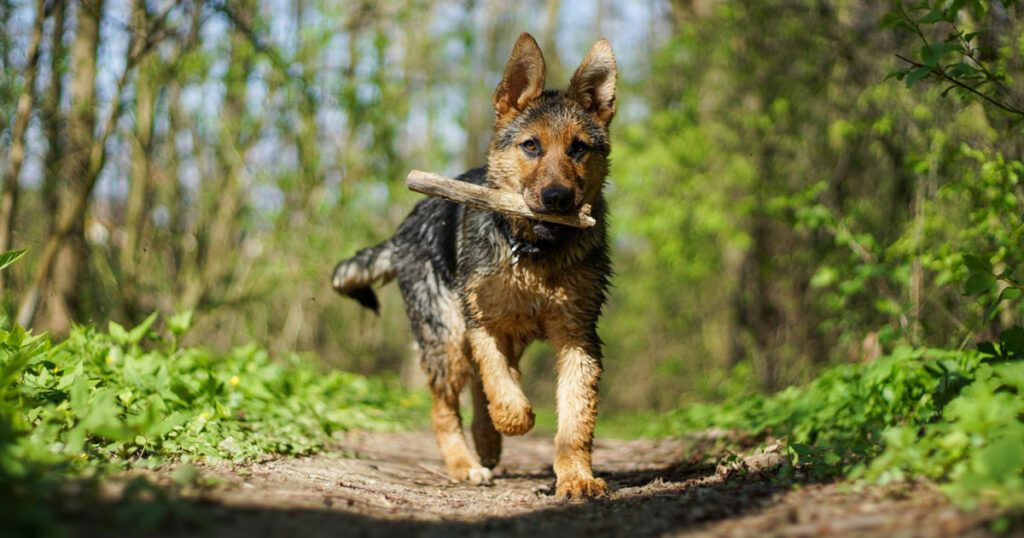
Behavioral Issues Addressing Food-related Behavioral Problems in German Shepherds
German Shepherds, like any other breed, can develop behavioral issues related to food. These problems can manifest in various ways, such as food guarding, resource guarding, or selective eating. Addressing these issues is important for the well-being of your German Shepherd.
To tackle food-related behavioral problems, start by establishing clear rules and boundaries during mealtime.
Use consistent and positive reinforcement techniques to encourage good behavior and discourage negative behaviors. Avoid punishing or scolding your dog during mealtime, as this may exacerbate the problem.
Slowly introduce training exercises that promote positive associations with food, such as hand-feeding or practicing commands before meals.
Gradually expose your German Shepherd to different situations involving food, such as having guests present during feeding time, to help them become more comfortable and reduce anxiety.
In some cases, consulting with a professional dog trainer or behaviorist may be beneficial. They can assess the specific behavioral issues and provide tailored guidance and training techniques to address them effectively.
By addressing food-related behavioral problems in a patient and consistent manner, you can help your German Shepherd develop a healthier relationship with food and create a more positive mealtime experience.
Frequently Asked Questions
Q: Why is my German Shepherd not eating?
Ans: There can be several reasons for a German Shepherd not eating, including health issues, stress, changes in the environment, dental problems, or a dislike for the current food.
Q: How long can a German Shepherd go without eating?
Ans: While it varies depending on the individual dog, a healthy German Shepherd can typically go without eating for a day or two without significant issues. However, it’s essential to address the underlying cause if the loss of appetite persists.
Q: Should I be concerned if my German Shepherd skips a meal?
Ans: It’s common for dogs to occasionally skip a meal, but if the loss of appetite continues for more than a day or is accompanied by other concerning symptoms, it’s advisable to consult a veterinarian.
Q: Can stress or anxiety cause a German Shepherd to stop eating?
Ans: Yes, stress or anxiety can impact a German Shepherd’s appetite. Changes in the environment, separation anxiety, or traumatic experiences can lead to a loss of appetite.
Q: What can I do to encourage my German Shepherd to eat?
Ans: You can try enticing your German Shepherd with warm, aromatic food, feeding in a calm environment, offering a variety of high-quality food options, or consulting a veterinarian for further guidance.
Q: When should I seek veterinary attention for my German Shepherd’s loss of appetite?
Ans: If your German Shepherd’s loss of appetite persists for more than a day, is accompanied by other concerning symptoms like lethargy, vomiting, or weight loss, it is advisable to consult a veterinarian for a proper evaluation.
Q: Are there any home remedies I can try if my German Shepherd not eating?
Ans: While it’s important to address the underlying cause, you can try offering small, frequent meals, warming the food, or adding low-sodium broth to entice your German Shepherd to eat. However, it’s best to consult a veterinarian for specific guidance tailored to your dog’s situation.
Conclusion
German Shepherd not eating can be a cause for concern and may indicate various underlying issues. It’s crucial to pay attention to your dog’s behavior, environment, and overall health when addressing this problem.
Whether it’s due to health issues, stress, changes in the environment, dental problems, or a dislike for the current food, identifying the cause is essential.
Seeking veterinary advice is recommended if the loss of appetite persists or is accompanied by other worrisome symptoms.
By taking appropriate steps, such as offering enticing meals, creating a calm feeding environment, and addressing any underlying health or behavioral issues, you can help your German Shepherd regain their appetite and maintain their overall well-being.

I’m David, an expert contributor and writer, with two furry friends of my own, I know the challenges of raising and caring for dogs. From training to nutrition and health, my goal is to provide valuable insights and advice to help create strong bonds and happy, healthy lives. Find me in Twitter.


